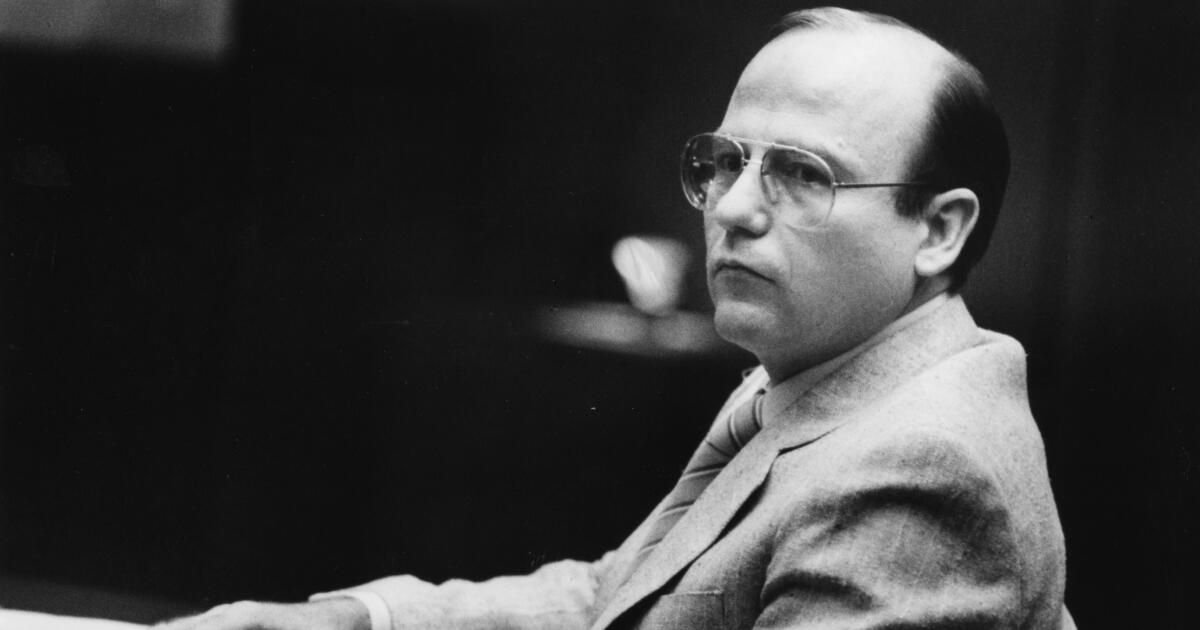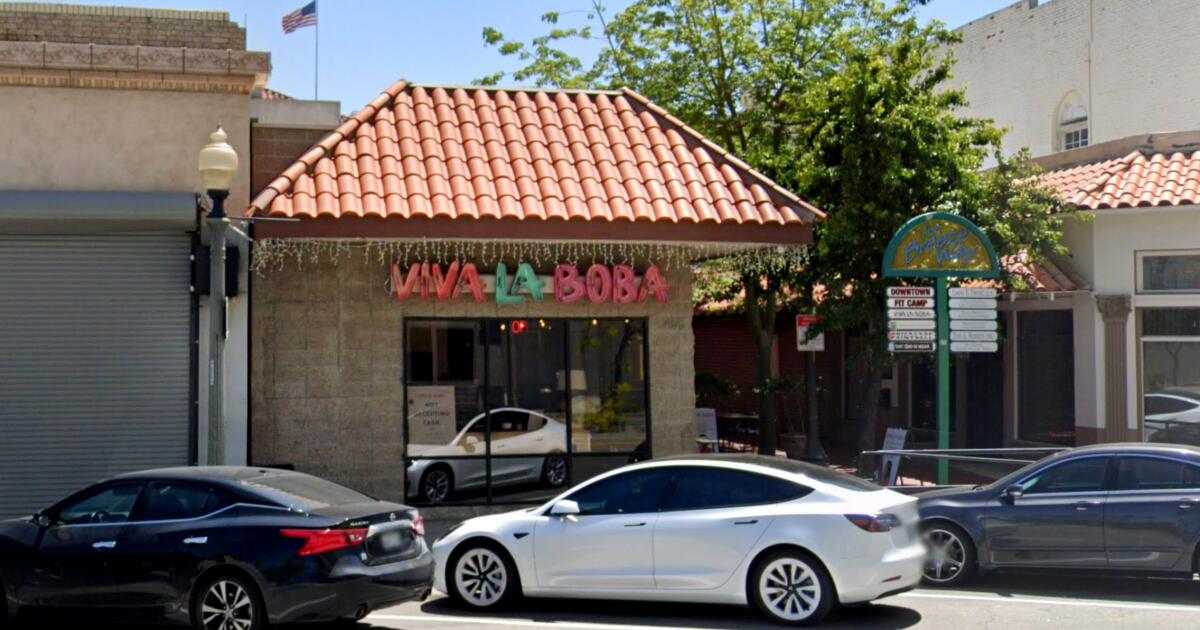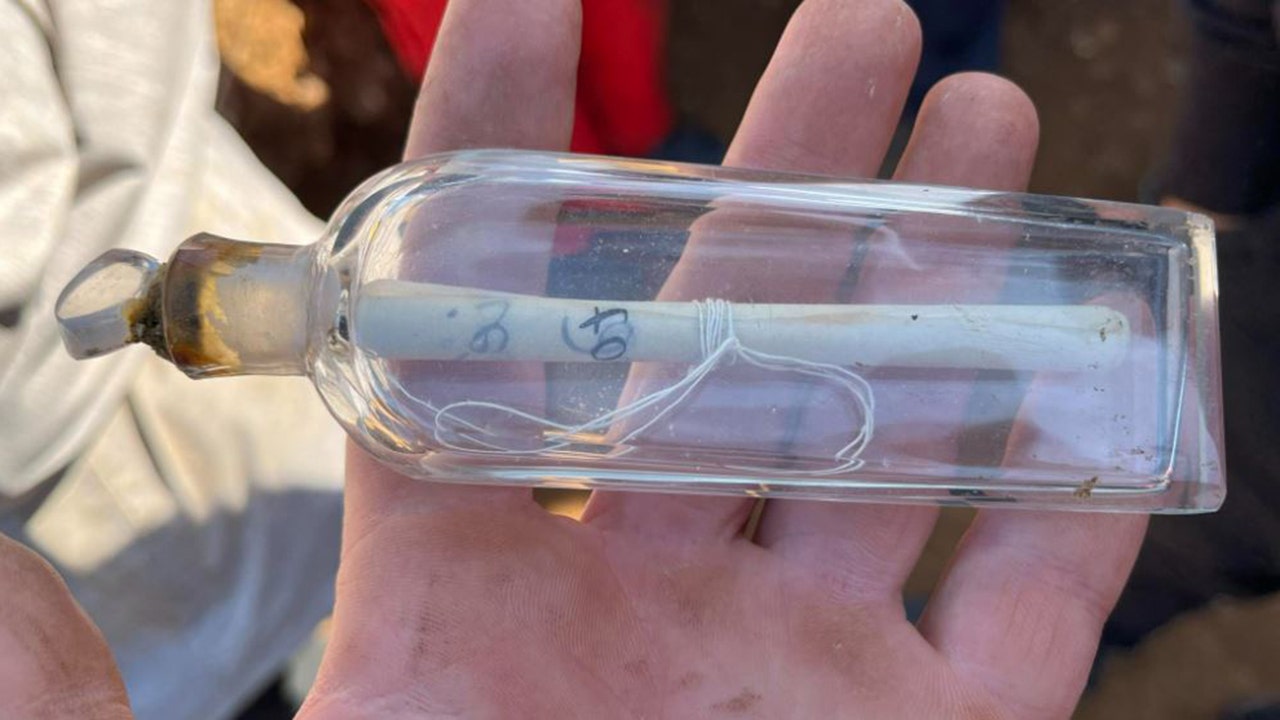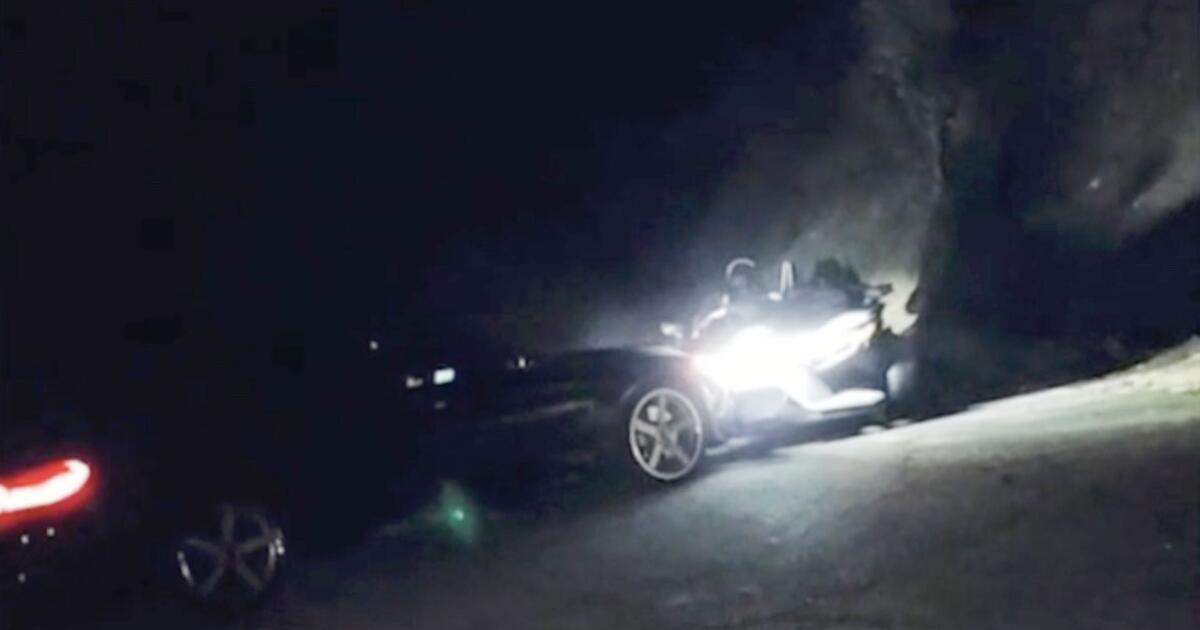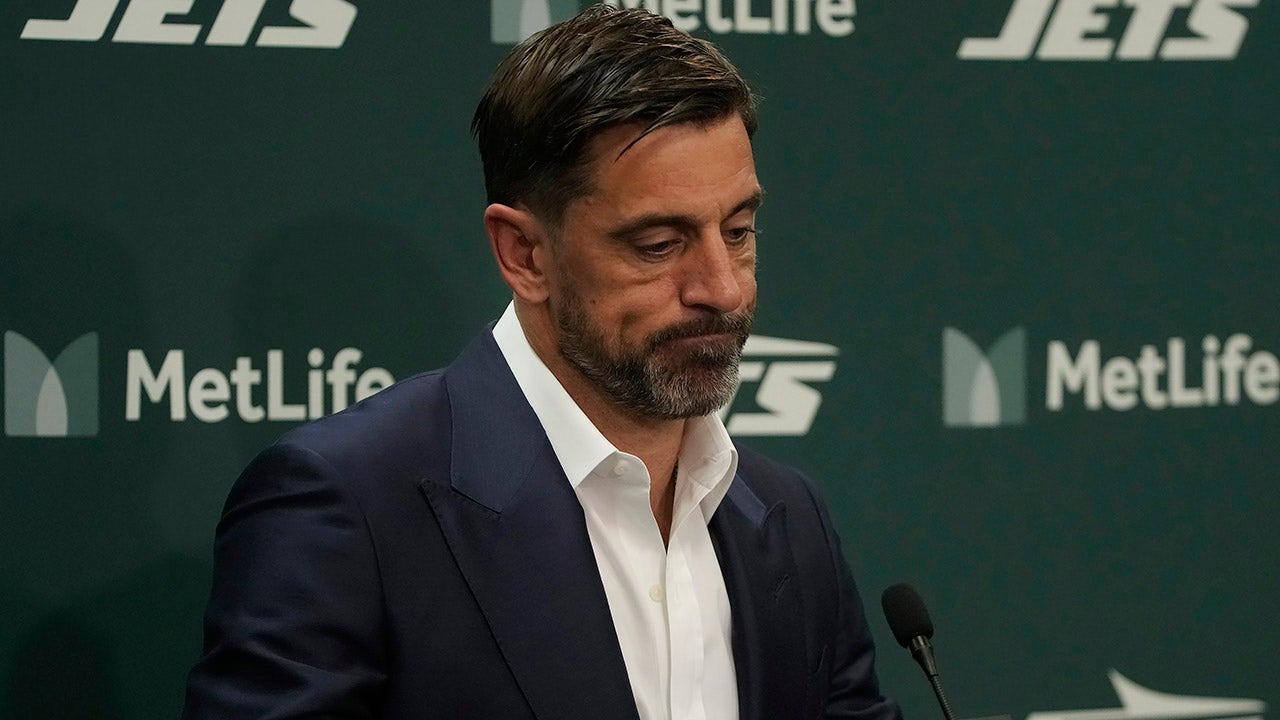The dirtiest cop in town was also the most colorless, with a forgettable face and a personality as vague as fog. At 77 years old, he has been locked up for 38 years, more than twice as long as he has worn a badge. He has been a meek and quiet recluse, as he was known – until his capture – as a meek and quiet police officer.
At Mule Creek State Prison, he attends 12-step programs and reads fantasy novels. She has a paralegal certificate, a sister-in-law with a boarding house, and a job offer at a law firm if she ever got out.
But the people with the power to free him remain baffled about his crimes, demanding explanations, psychological insight, even the slightest ray of sunshine about his motivations. Give us something.

In this series, Christopher Goffard revisits old crimes in Los Angeles and beyond, from the famous to the forgotten, from the important to the obscure, delving into the archives and memories of those who were there.
Killer cop William Leasure always disappoints. He blames “low self-esteem” for his career as an outlaw in the 1980s. He blames “criminal thinking” for disgracing his badge. He blames “questionable characters” and “reckless acquaintances” for leading him astray. He's the closest thing to a self-examination, at least in front of the parole board.
He is stingy with contrition. He admits to relatively minor crimes, such as serial yacht theft, insurance fraud, and building illegal gun silencers. He still denies the big crimes, the ones that landed him in prison: orchestrating the contract murders of a beauty salon employee and a jazz bassist.
The beauty salon employee was named Ann Smith. She was 41 years old and was shot with a .45-caliber pistol in her mother's beauty salon in Highland Park in May 1980.
The bassist was called Tony de los Reyes. He was 63 years old and was killed with a shotgun blast to the head in the parking lot of a Sherman Oaks saloon in September 1981.
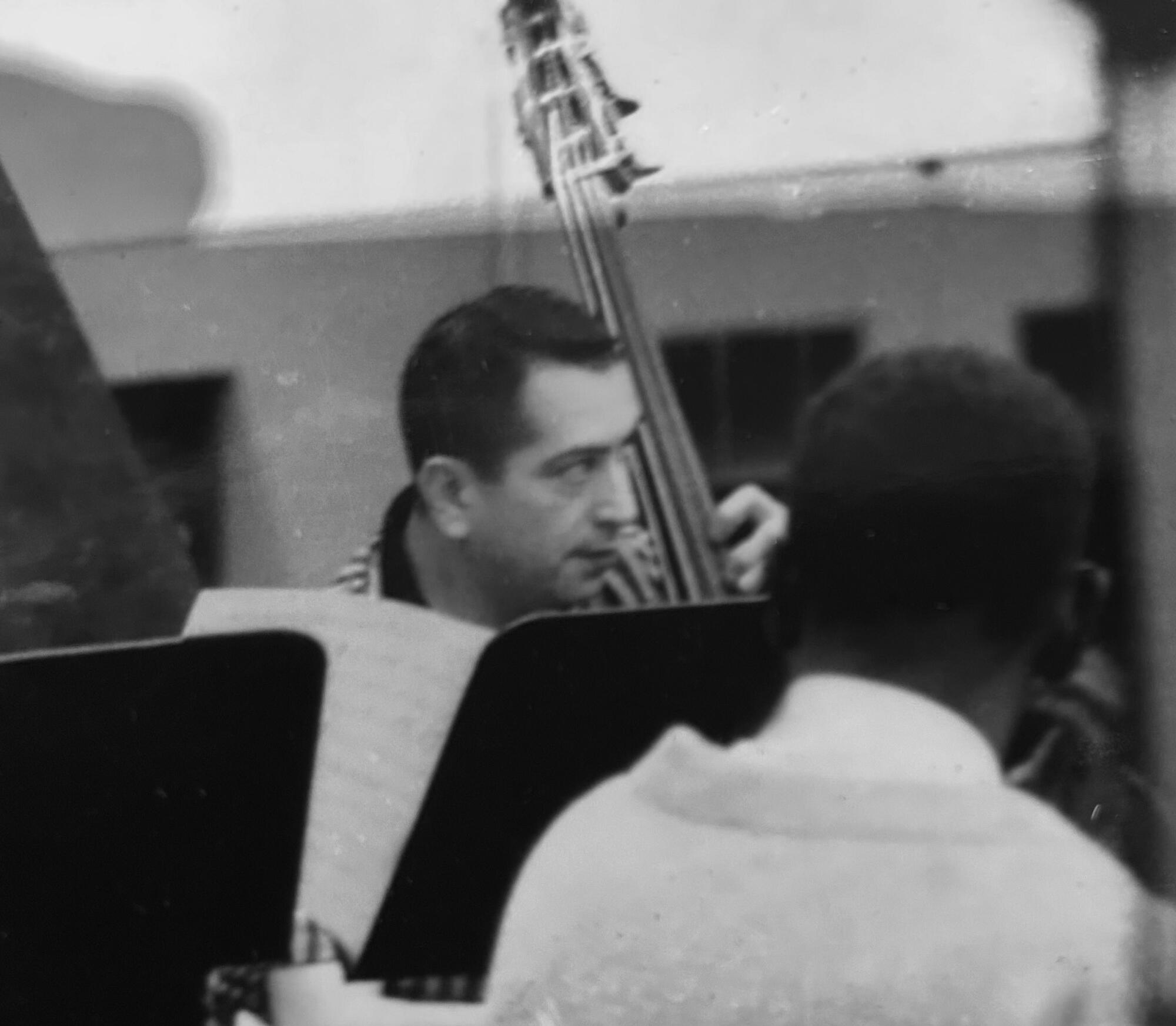
Tony de Los Reyes in an undated photo.
(Courtesy of Anthony de los Reyes Jr.)
The victims were unfortunate enough to be pitted against Leasure's friends in bitter divorces. In both cases, the admitted triggerman was a barely literate welder whom Leasure had met at a gun show.
And in both cases, the shooter would testify that Leasure, a veteran LAPD officer with a spotless record, planned the murders to look like botched robberies and drove the getaway car.

Leasure grew up in Wayne, Michigan, with what he described as “wonderful parents” and a “Beaver Cleaver” childhood. He served with the Marines in Vietnam, loved guns and boasted about his marksmanship.
As an accident investigator in the LAPD's Central Traffic Division, he was known as Mild Bill. He bragged that he never used his service weapon and that he didn't file a use of force complaint in 17 years with a badge. A good guy, people agreed.
He was nearing retirement when police caught him on a stolen pleasure boat in May 1986 and linked him to a multimillion-dollar yacht theft ring. The plan: steal ships from their moorings along the coast, disguise them and rename them to sell them to unsuspecting buyers.
“When he said 'Do something,' do it… I could do it or they could kill me.”
The LAPD launched a task force. They called their office the Leisure Room. When they searched his Northridge home, they found a stolen car, illegal gun silencers, and a stash of random yacht loot.
His fellow officers found it hard to believe. Bill mild? At worst, he was a lazy man who didn't like writing tickets and dodged radio calls. Some, however, had noted that he lived longer than a police officer's salary allowed. He drove fast Corvettes and owned several properties, as well as a 42-foot yacht called Thunderbolt.
Leasure ignored the questions, saying that his wife, Betsy Mogul, took care of him. He worked as an assistant Los Angeles city attorney and earned $78,000 a year, more than double his salary. The police investigated his life. How much did she know about her husband's criminality? The only thing they found was a case for possible tax fraud, which she won at trial.
Enter Dennis France, a midget cop who had befriended Leasure at a Pomona gun show and liked to tag along.
“Bill and I had done a lot of things together,” France would testify. “We had bought silencers, stolen ships, killed people, broken into places.” She said Leasure was the mastermind behind the murders outside the Sherman Oaks salon and at the Highland Park beauty salon. “Plus, he paid me, fixed them and installed them.”
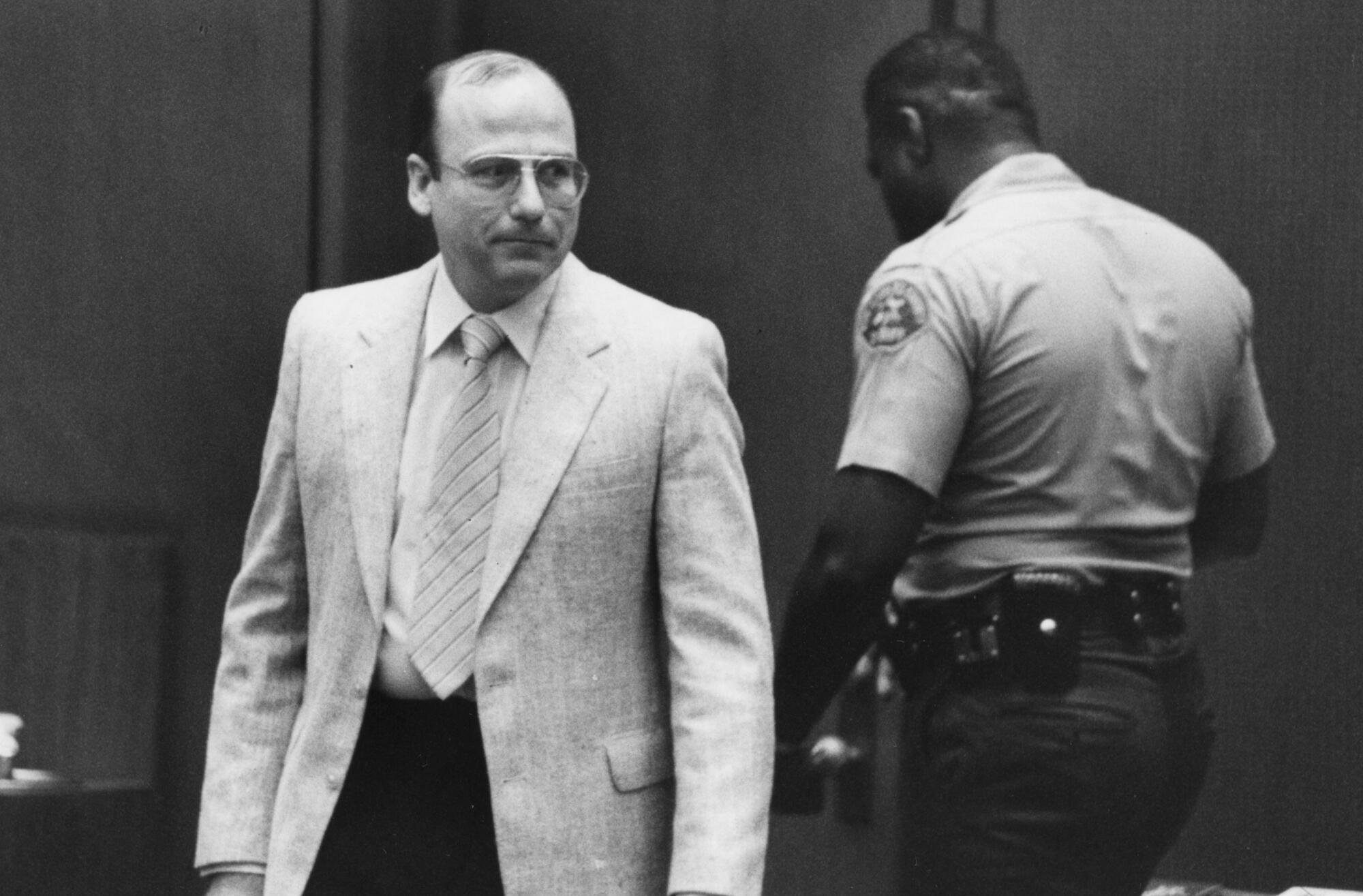
Former Los Angeles police officer William Leasure enters court on April 15, 1991, to make opening statements in his trial on accusations that he set up murders.
(Larry Bessel)
Francia seemed to idolize Leasure, but he also claimed to be terrified of him. “When he said 'Do something,' do it,” France said. “He could do it or they could kill me.”
According to France's account, Leasure ordered him to put a sock over the barrel of the .45 that killed Ann Smith in the living room, to trap the casing. When the casing fell out anyway, Leasure deducted $500 from France's $3,500 fee.
In exchange for helping catch Leasure, Francia got immunity from the district attorney's office, a deal that would forever infuriate the detectives on the case. Police sent France to a bugged jail in hopes of getting Leasure to incriminate himself, a plan the cautious Leasure foiled by writing his comments on a piece of paper and then erasing them.
France entered again and this time there was a small chamber on the ceiling. The crucial moment came when she asked Leasure what she had done with the “60th Avenue” gun, a reference to the beauty salon murder site.
Leasure wrote a word on a piece of paper. Seeing the hidden camera, she moved it closer to the glass.
“He's quite adept at presenting himself as a gentle, meek human being… You'd say, 'Nice guy, totally colorless.' “You wouldn’t even know his personality.”
“Melted,” it said.
He wrote another note: “Get rid of everything illegal.”
Defense attorneys fought hard, and unsuccessfully, to find an innocent explanation for the notes when Leasure went on trial in 1991, charged with two counts of murder and facing the death penalty. They attacked France as a liar who had singled out Leasure to save himself.
Apparently, Leasure was not a plausible hitman and explaining his motives was complicated. The money he was said to have exchanged for the murders was only a few thousand dollars. The prosecutor, James Koller, opted for a portrait of Leasure as a veteran police officer who had grown bored with writing traffic tickets and was hungry for excitement. He turned to murder “almost for the thrill: to get away with it.”
The separated spouses who requested the murders had already been convicted. At Leasure's trial, the first jury deadlocked and a second was being selected when he pleaded no contest to two counts of second-degree murder. He was given 15 years to life in prison. He claimed that he feared the anti-police sentiment that had been growing since the beating of Rodney King eight months earlier, a case that had overshadowed his sparsely attended trial.
The prosecutor called Leasure “the most corrupt police officer in the city of Los Angeles in its history.”
Leasure called himself “the nicest, calmest, most mellow guy you'll ever want to meet.”

Addison “Bud” Arce is one of the LAPD detectives who built the case against Leasure. Now retired, he testifies against him at parole hearings. He thinks Leasure could have walked free years ago, if he had simply confessed. But something in his nature prevents him from doing so.
“If I had gone in and made mea culpas, I would have left,” Arce says. “Even more so now, when they give anyone probation for anything.”
Instead, year after year, Leasure sits before the parole board and presents himself as a man who was criticized, who pleaded guilty to murders he had nothing to do with. He projects an air of bewildered harmlessness. When the interrogation escalates and his memory for details fails, he blames “brain damage” caused by his cholesterol pills.
“I had self-esteem issues,” Leasure told the board in 2021. “I had greed issues. I thought that by impressing others, they would like me and I would feel good about myself. And I learned everything that was wrong through self-help and recovery.”

Former Los Angeles Police Officer William Leasure is incarcerated at Mule Creek State Prison in Ione, California.
(Brian van der Brug/Los Angeles Times)
He had a happy childhood, but even then “he had self-esteem issues. And as a Marine, he had self-esteem issues. As a police officer, he had self-esteem issues.” His marriage to a city prosecutor didn't help. His wife's fashionable friends, the judges and lawyers, thought he was beneath her. At one point, he almost broke up with her, “and that affected my self-esteem.”
“What you told me today is that you had some self-esteem issues,” Commissioner Michele Minor said.
He continued to deny the murders. They asked him about the “Melted” note.
“There is never such a note,” Leasure insisted. “Does not exist”.
Anthony de los Reyes Jr., 81, son of the slain jazz musician, has testified at eight or nine of the hearings, making sure his father is not forgotten.
“He's quite adept at presenting himself as a gentle, meek human being,” Reyes said. “You'd say, 'Nice guy, totally colorless.' You wouldn't even know his personality. He hasn't changed since the first time I had the displeasure of meeting him.
“That man is a born liar and says everything in the same monotonous tone.
“No emotion. Absolutely none.”
The ritual has been performed before the parole board 13 times. Twice, the board decided it was safe to release Leasure, and both times Gov. Gavin Newsom reversed the decision. The governor found that he lacked “knowledge of her criminality and the causal factors.”
Leasure, who declined an interview request from the Times, will be able to make his case again in September. Arce, the retired detective, hopes to be there to remind the board of the details of Leasure's crimes.
He calls him “this shy little LAPD cop” and “Walter Mitty.” He has spent as much time as anyone pondering the motives of the meek officer working as a hitman, and they remain murky. It's hard to believe it was just money. Probably, he thinks, Leasure organized murders so that people would owe him debts; He liked that.
“It's confusing,” said Arce, now 79 years old. “People have asked me over the years, 'What kind of man is this?' I can not tell you”.

